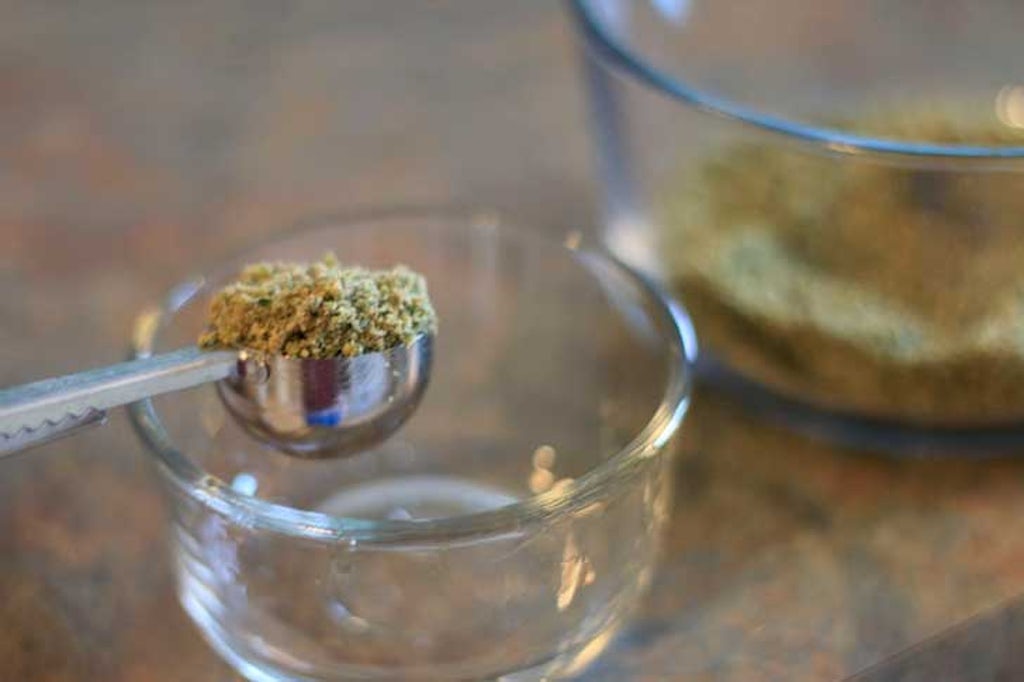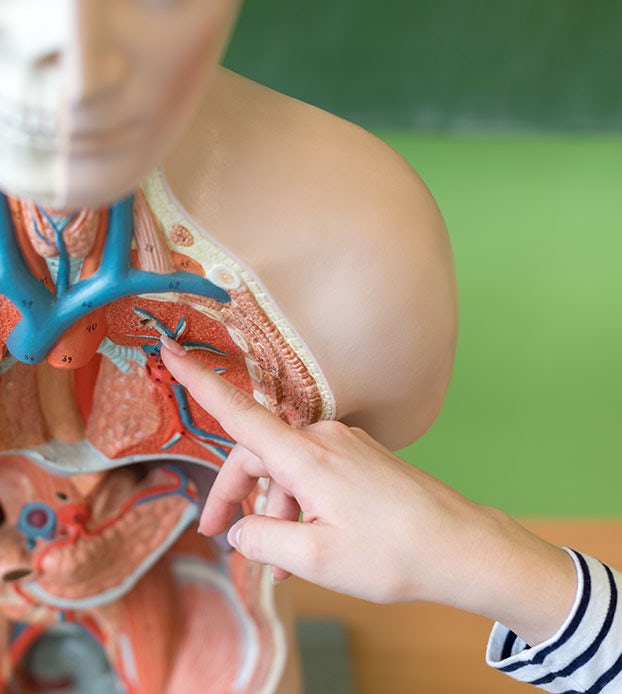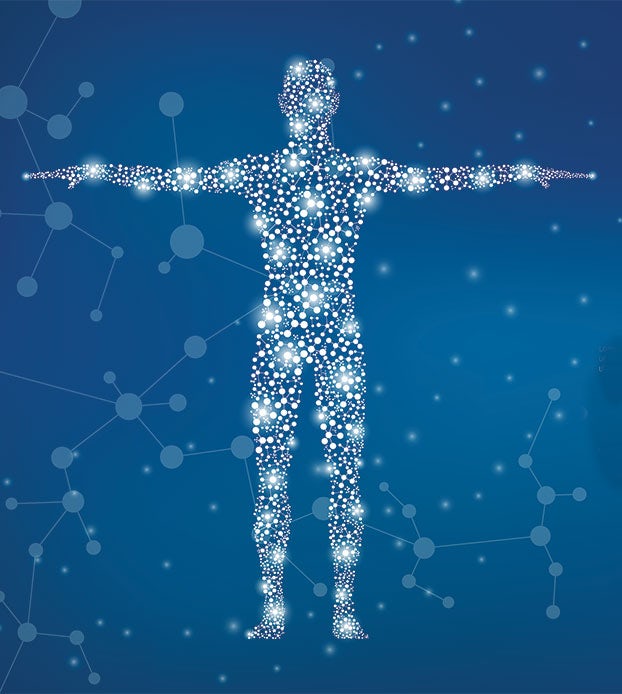There are numerous reports of people for whom edibles don’t produce the high they expect, even if smoked cannabis does get them high. There are several explanations for why this may be the case.
Some of those factors involve variables you can change. These include what you eat alongside your edible, interactions with other prescribed medications, and even lifestyle changes.
Other possible factors are beyond your control. These range from digestive disorders to metabolic rate and even genetic explanations like missing enzymes.
How edibles work
Once ingested, digested, and absorbed into the gastrointestinal system, the THC from edibles goes through a process known as first-pass metabolism in the liver. Liver enzymes convert some THC into its more potent form, 11-hydroxy-THC, which is then circulated throughout the body, interacting directly with our endocannabinoid system, producing the classical psychoactive effects.
The digestive process itself takes time. It can be influenced by gut health, what other foods you have eaten, medications, and even lifestyle factors such as activity level. Most experienced edible users are aware of the extended time it takes to feel the high as compared to inhalation. But what if the high never arrives?
There are many reports of people who do not experience any noticeable psychoactivity when using edibles as compared to inhalation.
“Noticeable,” in this case, means a conscious awareness of feeling high even though there may be simultaneous unnoticeable benefits. It is possible that other well-known properties offered in cannabis, such as anti-inflammation, may still be at work within the ECS even if you don’t notice. However, for those seeking a high, that explanation remains frustratingly elusive.
Variables you can control when taking edibles

Combining with fatty foods
Some of the simple solutions relate to how you take your edibles. Edibles are most efficiently absorbed when taken along with a high fat food or when combined with oils or butter. Cannabinoids like THC are fat-loving (lipophilic), water-hating (hydrophobic) substances. By administering cannabinoids with fats, the absorption from the gut and overall effects are enhanced.
Physical activity and exercise
Physical activity levels may also play a role. A more sedentary lifestyle results in a slower metabolism and sluggish gut motility (think movement = motility). This is why doctors encourage patients to get out of bed and walk following surgery — to keep the gastrointestinal tract moving.
Drug interactions
Prescription medications can affect how cannabis is metabolized by competing for the same liver enzymes. For example, atorvastatin, a commonly prescribed cholesterol-lowering medication, may compete for the same CYP3A4 enzyme that cannabis needs for metabolism, leaving fewer available for it. With fewer enzymes available to produce 11-OH-THC, the effect of oral cannabis (along with its psychoactive potential) may be reduced. Other prescription medications, such as anticholinergics, can also slow down digestion, which may change how the edible is absorbed.
Tolerance
Tolerance, or the need for increased doses to achieve the desired effect, is yet another possible issue. People differ in tolerance levels to cannabis, mostly driven by length and frequency of use. It is plausible that someone with a high tolerance to inhaled cannabis is not ingesting enough cannabis to have an effect.
With all that in mind, here is what you can do:
- Include a fatty snack when ingesting edibles
- Maintain an active lifestyle to promote gut health and motility
- Be aware of, and avoid potential drug interactions by spacing edibles and other medications at least two hours apart
- Reduce tolerance by taking a cannabis vacation (tolerance or T-break) for as little as a few days to allow the endocannabinoid system to reset
While tinctures are technically not edibles, they generally follow the same path in the body. Tinctures are touted to be rapidly absorbed from the oral mucosa, usually under the tongue. This means they would bypass the liver and first-pass metabolism, resulting in a quick onset of effects. There is limited evidence of the efficacy of oral mucosal absorption of cannabis. Furthermore, what does not get absorbed through the oral tissue ends up going the route of the edible.
Variables you can’t control when taking edibles
The more complex issues surrounding the mystery of the elusive high include physical health, genetic variations, and even gender.
Digestive disorders
Many digestive disorders such as Crohn’s disease, malabsorption syndromes, and liver disease may negatively impact how cannabis is broken down and absorbed in the gastrointestinal tract. For those with these conditions, it is possible that orally ingested cannabis may be eliminated from the body without ever reaching the endocannabinoid system. Edibles may not be the most efficient route of administration for those with a digestive disease.
Your genetic build
Genetic variations (gene alterations) include both the individual rate of metabolism and the necessary enzymes involved in converting THC to 11-hydroxy-THC.1
According to Dr. Staci Gruber, director of the Marijuana Investigations for Neuroscientific Discovery at McLean Hospital, “We’re only just now starting to understand the cannabinoid system . . . And it’s already clear that it’s not just about what and how much you’re using, it’s about how you’re wired.”
Some people are just naturally fast metabolizers. This means the cannabis is rapidly broken down and eliminated from the body — often before reaching levels sufficient to cause the high.
Other genetic variations comprise missing enzymes or dominant enzymes (specifically CYP3A4 or CYP2C9), resulting in altered THC metabolism or less of the more potent metabolite, 11-hydroxy-THC.
Differences between sexes

An article in the “Journal of Analytical Toxicology” describes a study in which 17 subjects, eight of whom were female, consumed THC brownies. With the exception of the placebo brownies, blood sample concentrations of THC and 11-hydroxy-THC peaked higher in women than men, due in part to the women’s lower overall body mass index and body weight.2
Interestingly, there were two female subjects in which there were no detectable blood levels of THC or 11-hydroxy-THC — with lower dosed brownies. The study did not measure subjective, or perceived levels of psychoactivity.
Other research covers various sex differences, but this study raises more questions about cannabis metabolism that can only further research with larger sample sizes can answer. Indeed, the authors suggest future studies recruiting men and women with more similar characteristics, such as age and body weight, to determine what other mechanisms might contribute to gender differences.
Until we have more research, some people may have to resort to other routes of administration. Attempting to change the variables that may be interfering with the effects could be the answer for a fortunate few. For others, only further research can reveal the answers to the clues as to why edibles don’t work for them.
Sources
- Hryhorowicz, S., Walczak, M., Zakerska-Banaszak, O., Słomski, R., & Skrzypczak-Zielińska, M. (2017). Pharmacogenetics of Cannabinoids. European Journal of Drug Metabolism and Pharmacokinetics, 43(1), 1–12. https://doi.org/10.1007/s13318-017-0416-z
- Spindle, T. R., Cone, E. J., Herrmann, E. S., Mitchell, J. M., Flegel, R., LoDico, C., Bigelow, G. E., & Vandrey, R. (2020). Pharmacokinetics of Cannabis Brownies: A Controlled Examination of Δ9-Tetrahydrocannabinol and Metabolites in Blood and Oral Fluid of Healthy Adult Males and Females. Journal of Analytical Toxicology, 44(7), 661–671. https://doi.org/10.1093/jat/bkaa067
Sign up for bi-weekly updates, packed full of cannabis education, recipes, and tips. Your inbox will love it.

 Shop
Shop Support
Support
















